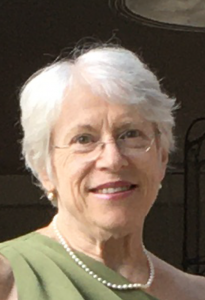Incest from a Young Age … Lasting a Lifetime
by Penelope Moore, LICSW
Abstract
This is a personal account of incest between the author and her grand-father. The events described occurred decades ago. The effect is long-lasting and is manifested by foggy thinking and physical sensations. The issues of knowing something and not knowing erupt now and again, even in the present. This is 2019, a time of social change. The #MeToo movement has reached a broad audience. It follows the acknowledgment of sexual abuse rampant within the Catholic Church. Coaches of sports acknowledge their sexual abuse of their trainees. Filmmakers and photographers, judges and teachers have been brought down by being exposed as sexual predators. Powerful men can have a misperception of being beyond social norms. Knowing that others have experienced sexual abuse can invite one to remember one’s own experiences. In this piece, psychotherapy is a context for putting memories and sensations together to enable a feeling of freedom—to feel alive in the present.
Psychodynamic Psychiatry, 48(1), 41-54, March 2020.
Link to Online Publication [fulltext can also be requested from the library]
About the Author

Penelope Moore, LICSW, is a BPSI Community Partner. She studied literature at Swarthmore College and was awarded the Tyson Fellowship. She earned three Master’s degrees: in Elementary Education, in Counseling Psychology, and in Social Work at Lesley University and Boston University. To prepare herself for clinical work, she first became a preschool teacher. She was a Fellow at Boston Institute for Psychotherapy (1983-1986); she trained in couple and family therapy at Psychodynamic Couple and Family Institute of New England (2015-2017). She is active with the Northeastern Society for Group Psychotherapy. She is on the Boards of PCFINE and NSGP and co-chairs two committees, each of which offers opportunities for clinicians to present their work to the community. She is a member of the NSGP Training Committee. She is a licensed independent clinical social worker and has been in private practice for 38 years. Her previously published article is An Open Discussion AA Meeting Opens My Mind: A Powerful Group Offers Understanding about Clinical Decisions. Reflections: Narratives of Professional Helping, 19, (3), 30-34, 2013.
Previous Posts:
Judith L. Kantrowitz, PhD (2020). A Psychoanalytic Memoir: The Analyst Enabled and Disabled by What is Personal. Journal of the American Psychoanalytic Association, 68(1), 83–100.
Cuneyt Iscan, MD (2020). Learning Along the Way: Further Reflections on Psychoanalysis and Psychotherapy by Patrick Casement, Routledge, Abingdon and New York, 2019, 156pp. American Journal of Psychoanalysis, 80:2, 235-239.
Anna Ornstein, MD (2020). The Relativity of Morality in the Contemporary World. Psychoanalytic Inquiry, 40:4, 223-233.
Sarah Ackerman, PhD (2020). Impossible Ethics. Journal of the American Psychoanalytic Association. 2020;68(4):561-582.
Cordelia Schmidt-Hellerau, PhD (2020). How Demagogy Works: Reflections on Aggression in Politically Fraught Times. Psychoanalytic Inquiry, 40:4, 234-242
Judy Yanof, MD (2020). A Separation: Breaking Up Is Hard to Do. The Psychoanalytic Study of the Child, 73:1, 172-181.
Elsa Ronningstam et al. (2020). Psychotherapeutic Treatment of Depressive Symptoms in Patients with Narcissistic Disturbances: A Review. Journal of Contemporary Psychotherapy, 50, 21–28.
John C. Foehl (2020). Lived Depth: A Phenomenology of Psychoanalytic Process and Identity. Psychoanalytic Inquiry, 40(2), 131-146.
Click here to see a full archive of featured papers. All articles can be requested from the library.

